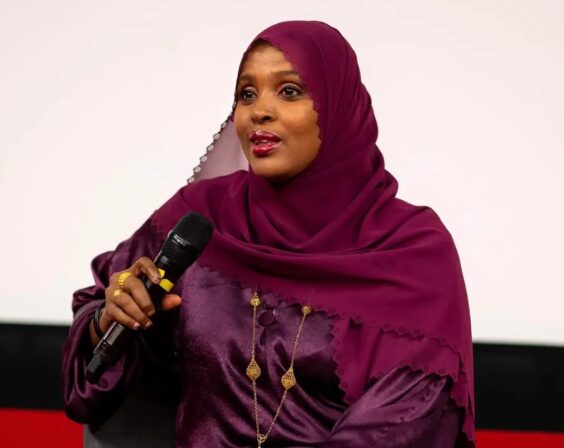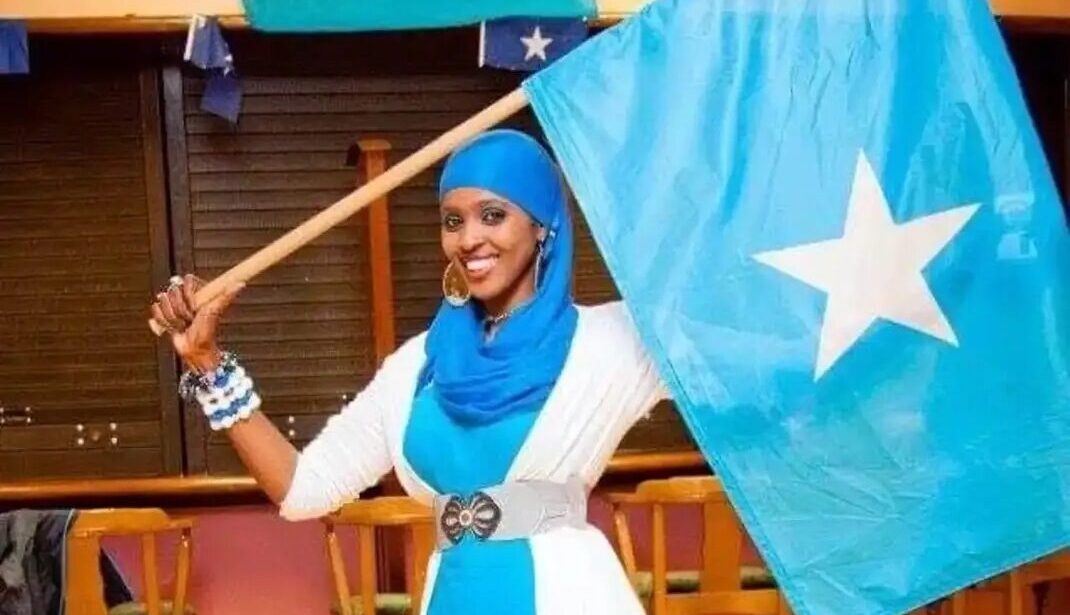Battling Maternal Mortality, FGM in Sub-Saharan Africa on International Day for Women and Girls of African Descent
Women's organizations speak out about the risk of dying in childbirth and the uphill fight to stop female genital mutilation
This Friday marks the International Day for Women and Girls of African Descent, an observance designed to raise awareness and promote empowerment. Though many women and girls face discrimination abroad, there is significant ground to be gained for women’s rights in many African countries.
From battling high rates of maternal deaths to challenging the brutal institution of female genital mutilation (FGM), activists and organizations are standing up for female protection and rights on the continent.
A woman who is pregnant has one foot in the grave
“In Chad, there’s a saying, ‘A woman who is pregnant has one foot in the grave,'” Angela Gorman, co-founder of the nonprofit organization Life for African Mothers (LFAM), which seeks to reduce maternal mortality in Sub-Saharan African countries, told The Media Line.
According to the United Nations Children’s Fund (UNICEF), in Sub-Saharan Africa, the maternal mortality ratio is 447 maternal deaths for every 100,000 live births, which averages to about one woman dying for every 224 live births. In the US, that number is one for every 6,000. The ratio is even higher in individual countries, with Nigeria being the highest, averaging about one woman’s death for every 100 live births.
In much of the world, this grim reality is shocking and unimaginable, but in these countries, it is the danger women face every time they go through pregnancy.

Angela Gorman, CEO and founder of Life for African Mothers. (Courtesy)
“When we started in Sierra Leone, it was the most dangerous place in the world to have a baby,” said Gorman, who is from Wales and was a nurse for more than 30 years.
According to the World Bank, the lifetime risk for maternal death in Sierra Leone is one in 74. Gorman said that number used to be one in seven and that the Sierra Leonean government acknowledges the nonprofit’s contribution to the reduction.
Morlai Kamara, the LFAM representative in Sierra Leone, told The Media Line that the country is leading the sub-Saharan region in reducing the maternal mortality rate.
“We had a rapid increase before and during the rebel war. But after then, we put things together,” he said of the country’s efforts in this area, including partnering with organizations like LFAM.
The nonprofit works on providing medication for women who need it, namely misoprostol, which prevents postpartum hemorrhaging, the leading cause of maternal mortality, according to the World Health Organization (WHO).
Gorman noted they have to provide the drug under strict governance because it is also used for abortions. She said she believes some governments are nervous about having it in case it’s stolen and sold on the black market for that purpose.
Besides providing medication, the organization also trains local midwives. If midwives are unprepared or uneducated about maternal health care, the consequences can be deadly.
And so by the time the baby was out, it was already dead. A beautiful term baby who should never have died.
“They’re doing it completely the wrong way around,” she said, describing a breech delivery in Chad where the incorrect birth position was used. “And so by the time the baby was out, it was already dead. A beautiful term baby who should never have died.”
Mather Kamara, who received training from LFAM, is the head midwife at the Koobay Health Center in Freetown, to which the organization donated medication, including misoprostol. She told The Media Line that since she started working there in 2015, there have been no maternal deaths.
“We’re using misoprostol. We say thanks to God—no maternal deaths,” she said, referencing the help of LFAM and the Sierra Leone Ministry of Health and Sanitation.
For Kamara, being a midwife is about saving lives.
“I wanted to be a midwife because I want to save lives of the African women in this community and Leone,” she said.
Gorman, who now has grown children in their 50s, feels a special calling to this line of work, as her own grandmother died in childbirth when her dad was 3 years old.
“I feel as if I’ve picked up the baton to try and prevent women dying unnecessarily,” she said.
This holiday season, give to:
Truth and understanding
The Media Line's intrepid correspondents are in Israel, Gaza, Lebanon, Syria and Pakistan providing first-person reporting.
They all said they cover it.
We see it.
We report with just one agenda: the truth.


Sub-Saharan Africa bears the biggest burden when it comes to maternal mortality, which Gorman attributes to several factors, including the pressure to have lots of children.
“It’s a bit like a jigsaw puzzle, you know—there’s a lot of different factors,” she said. “Obviously, one is poverty, one is corruption.”
There’s also an acceptance that ‘I’m going to die. It’s God’s will,’ and there’s nothing they can do about it,
“There’s also an acceptance that ‘I’m going to die. It’s God’s will,’ and there’s nothing they can do about it,” she said, explaining they don’t feel empowered and simply accept it.
“You should be banging on the doors of your government and saying, ‘We’re not prepared to accept this,'” she said.
In Monrovia, she watched a 19-year-old woman die of eclampsia, saying the necessary drug that could have saved her, magnesium sulfate, is in every maternity unit in the Western world.
“Babies dying who shouldn’t have died. It’s become—it’s sort of become the norm,” she said.
In Nigeria, she said between 58,000 and 60,000 women die every year because of these complications. One reason, she explained, is the extremes of wealth in the country.
“There are mega, mega, mega rich people in Nigeria—billionaires. People have got so much money, they don’t know what to do with it. And then women dying for 50 pence worth of medication,” she said.
Despite the barriers that still exist, Gorman explained the situation has improved since the organization started 20 years ago. At that time, over half a million women were dying worldwide each year because of pregnancy-and childbirth-related complications. She said there are now about 300,000 deaths per year, but it has plateaued near that number since 2015.
I often ask the question, ‘If 300,000 men were dying every year, would somebody have done something about it?’
“I often ask the question, ‘If 300,000 men were dying every year, would somebody have done something about it?’ And the answer is always yes. It’s about women,” she said. “This is about the status of women. They are expendable.”
In Somalia, Ifrah Ahmed, founder of the Ifrah Foundation and former gender coordinator for the Somali government, is fighting on a different front for women’s rights.
Ninety-eight percent of women and girls between the ages of 15 and 49 have experienced female genital mutilation in Somalia, according to the United Nations Population Fund (UNFPA). FGM is the intentional alteration or injury to female genitalia for nonmedical reasons. Across the world, more than 230 million women and girls are victims of FGM, according to UNICEF.
Ahmed explained many women who are victims of FGM experience kidney failure, problems during their period, depression and stress, pain and bleeding during sex, and problems with childbirth.
“Since I came to Somalia, we have lost many young girls to FGM. They died from bleeding; they died during childbirth,” she told The Media Line.

Ifrah Ahmed, founder of Ifrah Foundation, (Courtesy photo credit: Remi Winiarski)
A survivor of female genital mutilation, Ahmed became an activist against the brutal practice.
“I’ve been through a lot, and I’ve been through really physical and emotionally hard times, but public speaking helped me to heal and to become an activist,” she said.
She explained there is no medical benefit to the practice, and it is not a religious requirement.
Similar to the acceptance of maternal death, FGM is normalized within communities. Ahmed said this belief that it is normal caused much of the pushback she has received in her activism.
They basically feel that it’s okay to do it, and they see me as a Westernized woman, But now the community is having a little bit more understanding that FGM is an issue.
“They basically feel that it’s okay to do it, and they see me as a Westernized woman,” said Ahmed, who fled to Ireland at 17 because of the war. “But now the community is having a little bit more understanding that FGM is an issue.”
Ahmed said it is a cultural issue, noting that her mother and aunt were cut because her grandmother was cut.
It’s like passing generation to generation, and that is how family really practices FGM
“It’s like passing generation to generation, and that is how family really practices FGM,” she said.
She explained that although it is not a religious requirement in Islam, some people believe it is, contributing to the problem.
“Some religious leaders believe FGM should be practiced, and some believe that it shouldn’t,” she said. “The religious leaders sometimes confuse the movement.”
Ahmed began the organization 15 years ago and said the situation has improved in some ways, especially in awareness. She noted that in 2014, even journalists were not willing to speak out.
“People were not speaking about it,” she said. “Whereas now, journalists speak about FGM, and also media speak about it—social media talks about FGM.”
The organization also has a campaign called Dear Daughter, which has more than 100,000 pledges made by members of the Somali community to not cut their daughters, Ahmed said.
“Currently, they are trying to get an FGM bill passed in Somalia, but it has been shot down several times, “she explained.
I feel so disappointed because it’s been almost 10 years or more that I’ve been active in Somalia, and nothing’s happened
“But now, I feel so disappointed because it’s been almost 10 years or more that I’ve been active in Somalia, and nothing’s happened,” she said.
She understands the war has been going on in her country and the president is focusing on security, but she believes this issue is tied in with that.
But how will you build security if there is no right for the women?
“But how will you build security if there is no right for the women?” she said.
Though FGM continues to be a widespread issue throughout Africa and other parts of the world—especially affecting rural communities—it is diminishing in many countries.
“The practice is dying out in places,” Gorman said about FGM. “Not so much in the rural areas, but the cities.”
As the fight for women’s rights in Africa continues, women like Gorman and Ahmed are raising awareness about the very real dangers and issues that persist for women and girls in many of these countries.

